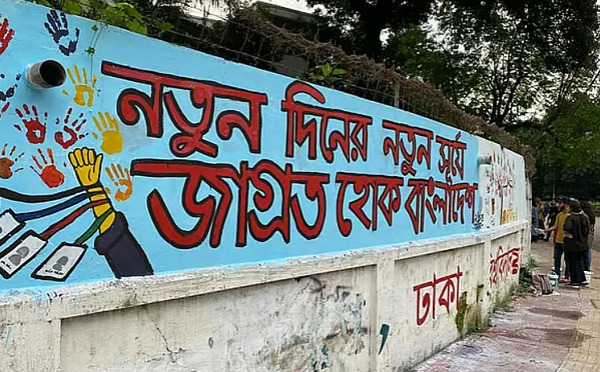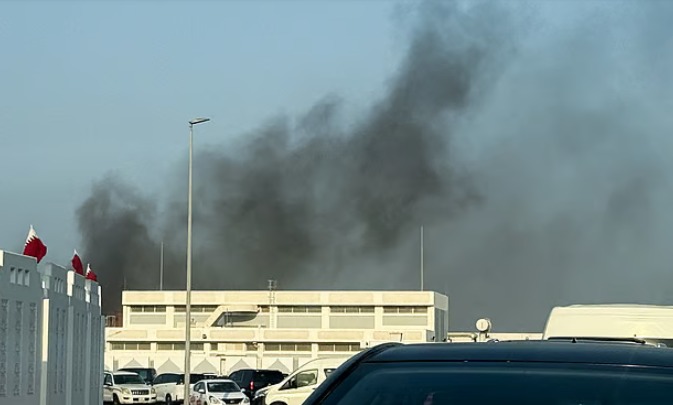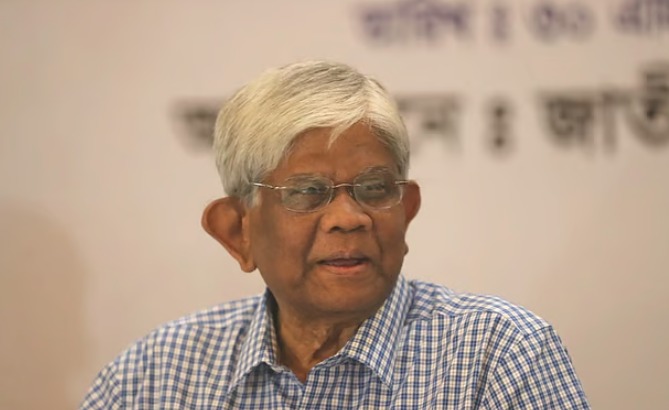Desk Report,
Bangladesh is not changing overnight.
The beauty of the July mass uprising was that the entire nation united against an authoritarian government and mafia system. Since many of the supporters of the Awami League, unable to bear the massacre of students and the masses, joined the movement, albeit belatedly, it can be called the ‘unity of the entire nation’.
Bangladesh is not changing overnight.
But after the dictatorship fled, that unity did not last even for a day, that is a disappointing reality.
Many opportunists started claiming that they were the main claimants of the movement. However, everyone joined the movement without any banner. The ‘Anti-Discrimination Student Movement’ created during the movement was the only banner, under whose call people from all over the country came out on the streets, and about 1,400 people gave their lives.
We can recall that within a few hours, some people went to break not only the statue of Sheikh Mujib, but also the statues on Fuller Road or at Shashi Lodge in Mymensingh. No one made this demand in the July movement: We want the right to vandalize statues and shrines. We have identified those vandalism and opportunism groups as right-wing conservatives, who, during the post-movement ‘nation-building’ period, have dismissed skilled, qualified, and responsible people as ‘Islamophobic’. They are the majority in the mob groups of the ‘mob’ phenomenon. There have been several incidents of beating up girls in public, forcing girls outside to enter the house. Members of the Women’s Reform Commission have been abused obscenely from the Hefazat-e-Islam rally.
The new group of students who led the movement has also not been able to give birth to a new political culture compared to expectations. BNP, Jamaat, and NCP are now in constant conflict. However, there is more goodwill than the conflict between the last two parties. Many of the ordinary parties that joined the movement have returned to their old ways. During the July struggle, everyone had one promise: the fall of Sheikh Hasina’s government. After the collapse, except for opportunists, the majority of people dreamed of a new Bangladesh. It has been understood in a year that Bangladesh will not change overnight. Rather, the path of change is long and slow. Some parties have been forced to retreat from the field of political wrestling by tactics or by creating situations. For example, even though women are at the forefront of the movement or students of private universities or madrasas have made a major contribution, the new political force led by youth, centered on Dhaka, is dominated by men and former students of public universities. The essence is that even though the movement was for everyone, the dominance of some has been established in the year after the movement. The responsibilities of the interim government formed after the movement were mainly three: reform, justice and elections. There are 11 reform commissions, and the commissions have also submitted reports. Now, discussions are underway between political parties with the consensus commission on reforms. However, I think the attempt to establish a dialectical framing of reforms with elections is a dishonest attempt.
There was a campaign called ‘Reforms first, elections later’, along with another campaign called ‘Yunus government wants 5 years’. Parties other than BNP were in favor of these campaigns. And BNP was in favor of the ‘elections first, reforms later’ policy. In fact, the government’s position on announcing the election date was unclear.
Those responsible for the killings during the movement must be tried. Some potential perpetrators have been arrested. But many others fled long after August 5, including Obaidul Quader, who ordered the attack on the peaceful protesting crowd, former Home Minister Asaduzzaman Khan, and DB chief Harun-ur-Rashid, who was directly involved in the disappearances and torture. The prevailing belief is that they got this opportunity by spending a huge amount of money.



